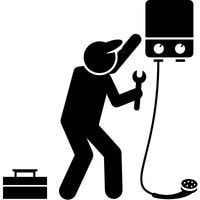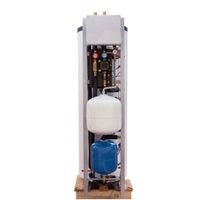How Long Does It Take To Drain A Water Heater. How long does it take to empty a water heater if you’re a new homeowner.
Draining and flushing a water heater is an important part of keeping the device in good working order. It assists you in cleaning the inside of the tank by eliminating collected sediments and dirt.
The length of time it takes to drain a water heater is determined by several factors. Let’s have a look at them to see how long it will take you to complete this work.
How Long Does It Take To Drain A Water Heater
Draining a water heater is something you should do once a year to keep your water warm and shower-ready. The draining process is quick, usually no more than 15 minutes, depending on the size of your tank, but prep work takes a bit longer and the whole process may require about a day.
In this article, we examine how long a water heater needs to be drained.
Verify Pressure Head
The pressure head of the pressure tank is the most significant consideration. If you want to put your pressure tank on top of your hot water heater, it should have a large capacity.
One foot of elevation decline equals 0.433 pounds per square inch of pressure head, according to gograte.
This implies that a greater pressure head will benefit your pump and boiler since you will have more hot water than with a lower-leveling system. Because of the increased capacity, you’ll also want a bigger pipe.
Capacity Of Tanks
Larger containers, on average, hold more hot water than smaller ones. Assume you have a 40-gallon container and a 60-gallon container.
In such a situation, all other circumstances being equal, you should anticipate the 40-gallon product to reheat faster than the other.
We recommend upgrading to 45 gallons of hot water storage if your household is more than 5 members or if you use the dishwasher at least once every day.
Understanding Gravity Of Water
The water will descend at a rate of 33 feet per second if it is free-falling. The downward force at this level is determined not just by the diameter and flow rate, but also by the pipe material.
Smooth surfaces enable more volume to flow downwards more quickly, boosting speed. It also relies on the volume flow rate, with a high flow rate collecting significantly more gravitational forces than one with a low flow rate.
Pressure Of Water
A hose with a 10 GPM flow rate will push the water faster from your sprinkler system than a hose with a 7-GPM flow rate. This is true, of course, if both water heaters have the same drain valve size and tank capacity.
Water heaters drain nine gallons per minute (GPM) to 17 GPM. If you have an 80-gallon water heater, it will take about five to nine minutes for the water to completely drain from it. Preparation is half the battle.
You can drastically speed up the process of draining a hot water heater by preparing materials and tools beforehand and employing a set of processes that you’re comfortable with that help you work quickly.
Understanding Hydraulics
A drainage system’s hydraulics are basically the force and air pressure generated by the tank in order to maintain the pipelines running freely.
The flow will stop if there are airlocks, thus it’s critical to avoid this issue by making sure you know what to look for while draining your tank properly.
The issues should be kept to a minimum as long as any relevant drains are open and in excellent shape wherever they’re needed.
FAQs
Can you tell me why my water heater is taking so long to drain?
If the water heater won’t drain, then the sediment buildup may have clogged the drain valve.
Before you take apart your water heater, it’s a good idea to flush out all of the potentially hot water in your water heater. It’s also a good idea to make sure your hot water tank is installed correctly.
The sediment builds up in water heaters for what reason?
There are a few things you can do to reduce silt building if you use a storage-tank water heater. As your water heats up, natural sediments like calcium and magnesium develop into particles.
Sediment accumulation can be exacerbated by changing water temps from excessively hot to lukewarm. Another reason for this is rising energy costs.
How Long Does It Take To Drain A Water Heater
Related Guides
